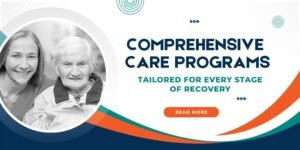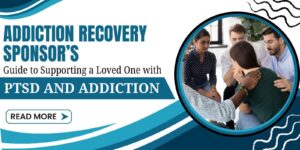Cocaine is a highly addictive drug that alters the production of the chemical dopamine in the brain that is related to reward and pleasure. This illegal substance is a white powder obtained from the leaves of the coca plant found in South America.
The drug can have a damaging impact on the body and brain of the user. Trying the drug only a few times is enough to develop cocaine addiction, a serious medical problem in the US. According to the National Survey on Drug Use and Health (NSDUH), the first-time users of cocaine aged 12 and over in 2019 were 671,000. Individuals grappling with the issue must seek expert guidance and timely cocaine addiction treatment.
Once addicted to cocaine, getting free from the clutches of the drug on your own is not possible. To prevent the situation from worsening, individuals should approach cocaine rehab centers that provide professional treatment programs and guided support based on the individual’s condition. Some of the factors consideredwhile designing individualized treatment plans are age, gender, the severity of the problem, underlying issues, mental health conditions and the duration of addiction.
Knowing the reasons responsible for cocaine use and misuse is key to achieving long-lasting recovery. Getting to the root of the problem is important to get rid of the problem forever. Continuous use of cocaine creates dependence on the drug. And various reasons can force an individual to take to cocaine misuse. Some of them are:
- Fighting boredom
- Taking it recreationally
- Family problems
- Financial issues
- Dealing with physical injury
- Overcoming work pressure
Cocaine is known by different names like ‘crack’, ‘blow’, ‘snow’, ‘coke’, and ‘vfh’. Different age groups have different usage pattern. According to the National Institute on Drug Abuse (NIDA), in 2018, 2% or 5.5 million people used cocaine in the past year in the US.
It was also found that in 2018, 1.4 million people over the age of 26 years used cocaine in the past month. During the same period, for the age group 18-25 years, 524,000 people used cocaine in the past-month.
It is the American youth between the ages of 18 and 25 that reportedly use cocaine more than any other group. It is a growing problem among minors as well now. According to the NIDA,around 2% of grade 8 students had used cocaine as of 2020.
According to the Centers for Disease Control and Prevention(CDC), cocaine was involved in nearly 1 in 5 overdose deaths in 2019. It also added that theoverdose death rate for cocaine went up by 5% from 2017 to 2018. To control the growing cocaine addiction issue, it is important to take corrective steps at the start so that the situation does not snowball into a severe addiction problem. Some tips to overcome the initial dependency on cocaine are:
- Stay away from temptations by not joining parties
- Join social groups that do not take cocaine
- Get involved in physical activity and workouts
- Join meditation or yoga classes
- Join a hobby class or go hiking and trekking
After analyzing over 1 million drug testing results from routine health care settings, a researchletter published in JAMA Network Open in January 2020 found that cocaine use increased by almost 21% from 2013 to 2019. Substance addiction can cause a huge financial burden on the user and result in lost productivity.
Seeking professional treatment from rehab centers for addiction treatment for cocaineis the step in the right direction to overcome any kind of substance use disorder (SUD), including cocaine addiction. Each step entails its own problems that can be best tackled by an expert at a rehab center. Let us look at the steps to get rid of cocaine addiction.
The actual treatment for cocaine addiction starts after detoxification which removes all the addictive substances from the body. Detox should be done by an expert, and it should never be done on your own at home as it can lead to relapse and can even turn fatal. In severe cases, medicines might be needed to tackle the negative effects of detox. The duration of detox depends on the severity of the problem, underlying health problems, co-occurring mental health disorders, age and family history.

When users stop taking cocaine during detox, they experience various side effects and cravings called withdrawal symptoms. This is one of the reasons why users fail to quit the drug on their own. The cravings are so strong that with no support and help, users are bound to relapse to drug use in no time. The symptoms vary from one person to another. And they depend on the severity of addiction, co-occurring mental health problems or dual diagnosis and duration of drug use. A medically assisted detox under constant supervision helps addicts overcome this phase. Some of the cocaine withdrawal symptoms are:
- Depression
- Anxiety
- Agitation
- Insomnia
- Nausea
- High blood pressure
- Palpitations
Our navigators will help you take back control of your life.
When you call our helpline, an admissions navigator is there to listen to you, answer any questions you have, and provide the support that you need—all 100% confidentially.
Addiction treatment for cocaine drug starts when the individual has overcome the difficult phase of detox and withdrawal symptoms. Given the complexity of SUD, an effective treatment procedure is designed as per the individual’s case and situation. After the detox, in-depth analysis and assessment help understand the type of rehab facility needed and the best course of action to be taken. If you are not in a condition to travel, use the online search option –cocaine drug rehab near me – to search for and book a rehab center that would help manage your cocaine cravings.
A recent research published by Jama Network Open said that in the US, the second leading cause of illicit drug overdose death is cocaine use. And the most challenging aspect is that FDA hasn’t yet approved any medications to treat cocaine addiction. The medicines available help manage withdrawal symptoms during detox and prepare the body for further modalities. Some medicines are also used to calm the central nervous system.
These medications come with many side effects, stressing the importance of rehab centers in helping to give up cocaine. A cocaine treatment program helps users live a healthy life without depending on the drug. They make use of different therapy like cognitive behavioral therapy, art therapy, equine therapy, meditation and yoga.
Rehab centers for cocaine addiction offer support even after the treatment is over to help users fight the urge for drug use and overcome any form of relapse. It eventually prepares individuals to stay positive and strong-willed and achieve sustained recovery because cocaine addiction is a chronic disorder. Even a little weakness is enough to take you back to the problem. As part of aftercare services, individuals can learn coping mechanisms, connect with support groups and attend family, group or individual counselling sessions to keep away from triggers and experience holistic wellbeing and happiness.
Check to see if your insurance is in-network at an American Addiction Centers location
We’ll instantly check the coverage offered by your insurance provider.
Cocaine addiction brings a feeling of hopelessness among addicts. In such a situation, they are sure to benefit from the positive impact of cocaine rehab centers that offer a structured treatment plan tailored to suit the needs and requirements of the patient.
The drug-free area and qualified doctors and counselors at rehab centers make it easy for addicts to quit the substance and learn various coping strategies and mechanisms that help to achieve long-lasting sobriety. Experts provide round-the-clock supervision during the stay. Aftercare services are also offered once the patient is discharged from the center. The timely treatment at rehab centers helps achieve a quick and safe recovery.
Cocaine rehab programs take care of all the aspects of cocaine addiction. They take into account various factors before finalizing the type of addiction treatment needed for the problem. Apart from inpatient alcohol rehab and outpatient alcohol rehab, patients might even need a partial hospitalization program. Let’s look at the programs.
In an inpatient alcohol rehab, also called a residential treatment program, individuals live in a hospital or a clinic for a certain time while receiving treatment for cocaine addiction. They receive 24*7 support and care from doctors, nurses and other experts. There is also the scope of tweaking the treatment plan to suit the patient’s condition. With no contact from the outside world, individuals focus on recovery and get to stay away from triggers. The program is preferred for patients with severe addictions.
In certain cases, individuals might not want to forego the luxuries of life when receiving cocaine addiction treatment. Such patients can always opt for a luxury rehab facilitythat fulfils the needs and desires of each individual.
Outpatient cocaine rehab is preferred for less severe addictions or for people who have already attended inpatient rehab programs. Here individuals can fulfil other home and work responsibilities as they visit the center on certain days to undergo the treatment. This program gradually prepares the patient to shun the urge of cocaine in any form and lead a sober and healthy life.
A partial hospitalization program is a path between inpatient and outpatient cocaine rehabs. It is suitable for individuals suffering from mental health problems along with cocaine addiction. Patients visit the rehab during the daytime for treatment but get to spend the night at home. The program helps patients stay away from triggers and receive support in achieving sustained sobriety and good health.
In case you feel that you are experiencing and displaying signs of cocaine dependency, you can take an online assessment test to know if you are addicted to cocaine. It also lets you know your level of dependence and abuse. The test allows you to take control of the situation and seek the help of an expert in case professional treatment is needed. Cocaine addiction should not be taken lightly as it can affect an individual’s health, relationships and work. As per the NIDA, in 2018, there were 14,666 fatalities related to cocaine.
It is important to involve family members and loved ones in the cocaine addiction treatment plan for better treatment outcomes. Their emotional support and understanding provide the strength to the patient to start life again and believe in themselves. To make it a smooth journey, they should keep a cordial atmosphere in the family and avoid any friction.
Family members can be pillars of strength during these difficult times. In order to be supportive members, they should be aware of the signs and symptoms of cocaine addiction and its impact on the mental health of the patient. This awareness would help get expert help when needed.
They should be patient and remind their loved ones about taking their medications on time. They should also motivate them to try various coping mechanisms. They can also reward them for their positive choices. Activities like this help boost their morale while keeping them stay on track. They can be a part of the support groups to stay connected in the recovery process.
Before helping an individual addicted to cocaine, you need to inform yourself about the drug, its effects, the recovery process and the related problems during the journey. Be honest with the person. Avoid being negative while talking about the recovery path. Be patient to manage the potential mood swings related to addiction. You also need to take care of yourself while handling a loved one suffering from SUD. Your constant effort and patience are sure to help your loved ones get sober and regain their lost life.









